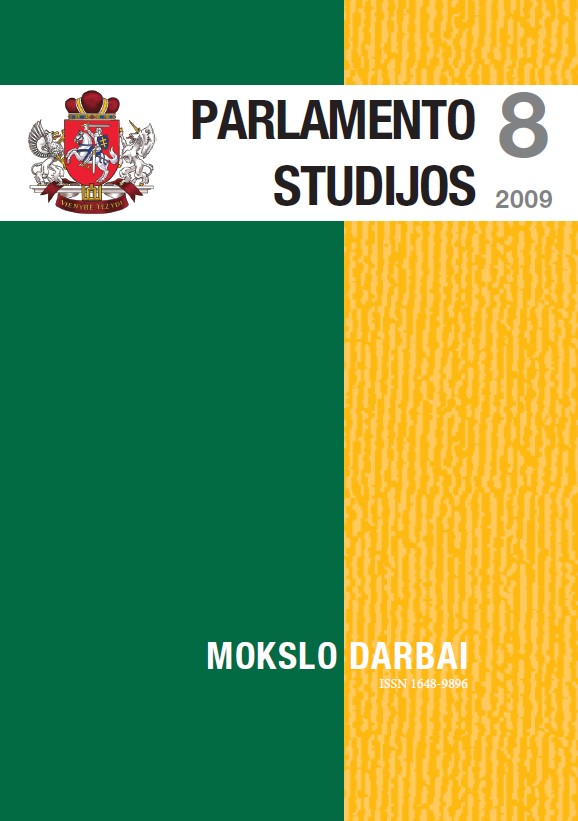The Forecast and Situation of European Parliament Election in Lithuania ‘2009
DOI:
https://doi.org/10.51740/ps.vi8.334Keywords:
European Parliament, second-order elections, euro-scepticism, party system, political polarization, party institutionalisationAbstract
The purpose of the article is to deliver the analysis of results of European Parliament election 2009 by examining three questions. Each question is examined in separate part of the article. The low participation in the election is discussed in the first part, the trends of party system development extrapolated from the results of elections in the second and ideological match of Lithuanian political parties with the ideology of groups in European Parliament, which members they are in the third one. The article draws its conclusions by using theoretical framework (provided by Michael Marsh) on participation in election to European Parliament. The original research of the author is used as well. The article concludes that the results of the election to European Parliament 2009 reveals the trend of growing political polarization, but denies the notion, that low participation means sceptical attitude to the European Union among Lithuanian voters. Rather the elections fit in the classical second-order national contest category, which explains low participation.








 The metadata of the scholarly journals and publications of the Lithuanian National Martynas Mažvydas Library is distributed by
The metadata of the scholarly journals and publications of the Lithuanian National Martynas Mažvydas Library is distributed by 